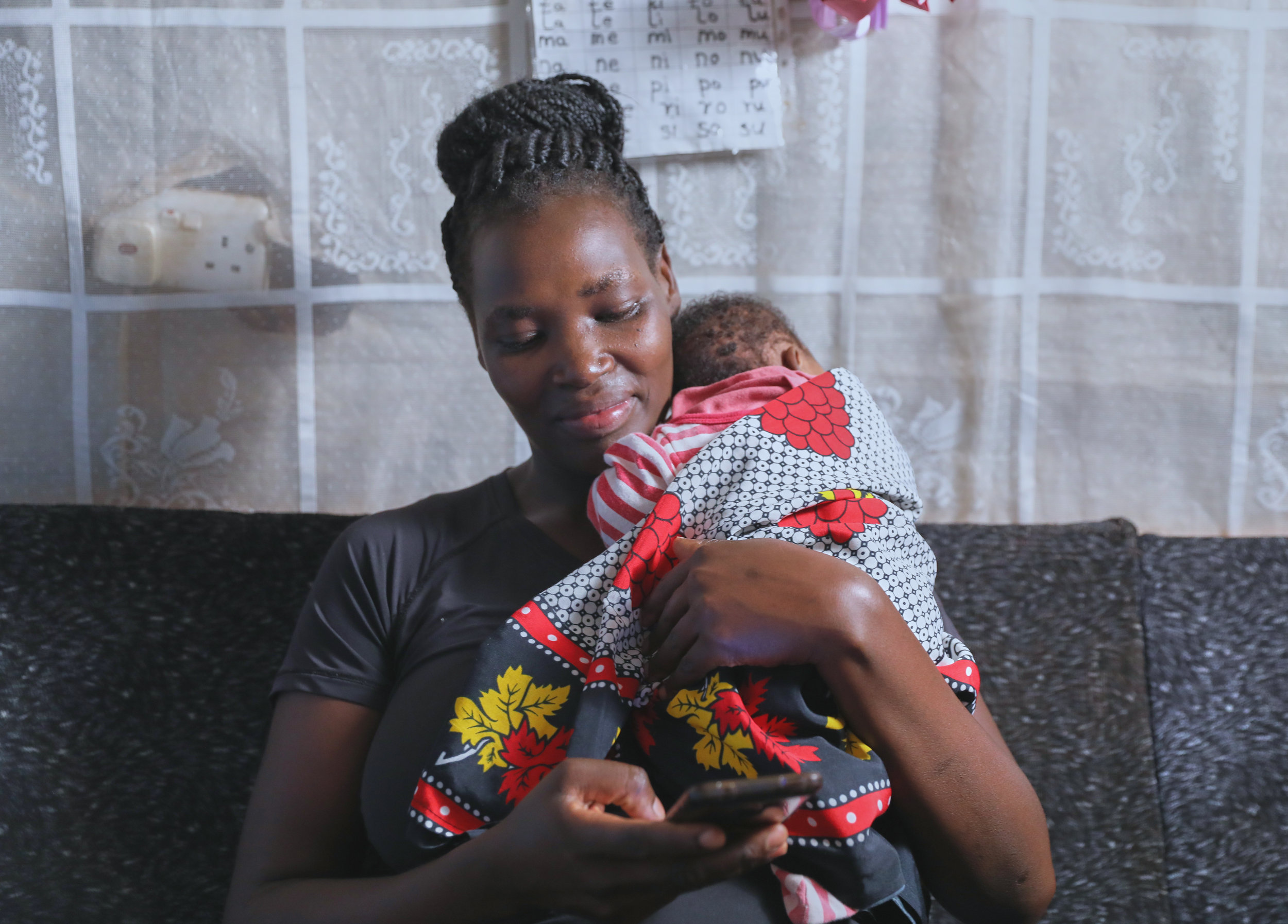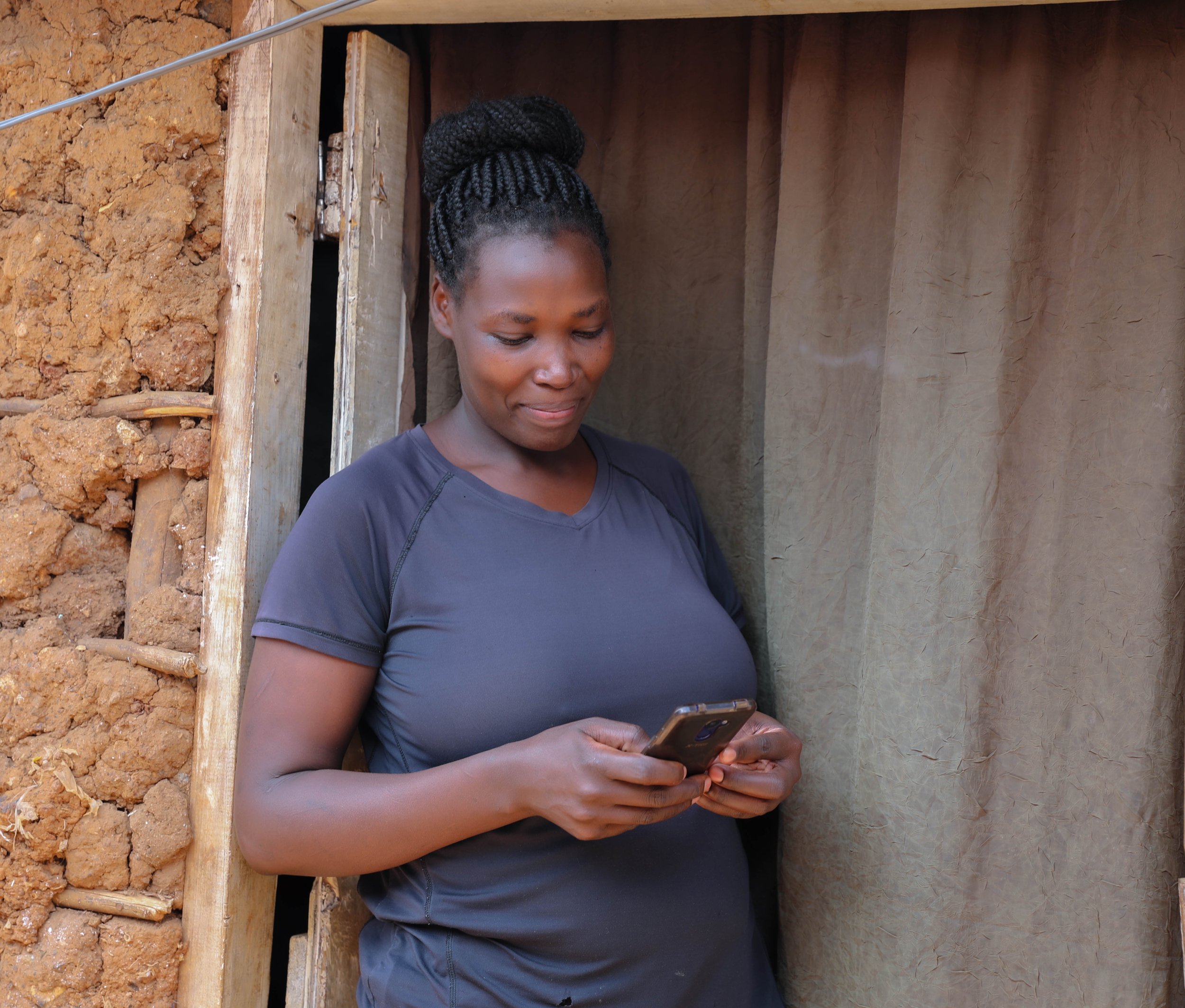– Kibera Informal Settlement, Nairobi, Kenya.
In her third term of pregnancy, Lilian felt a sharp pain in her lower abdomen. She set off on foot to the nearest health center at dawn the next day, hoping to beat the line of patients that would inevitably build as the sun climbed higher. Sure enough, she was seen quickly, but by a nurse who explained her condition could only be managed by a specific doctor who was not around. The waiting felt interminable, punctuated only by a request to fill in a form, but without the follow-up. At 6pm that day, Lilian stood up and walked out of the facility gates into the bustle of Kibera’s main thoroughfare beyond.
Situations like this in Kenya are not isolated, where high patient volumes, staff shortages, and operational inefficiencies can compromise the quality of care and level of respect mothers receive at facilities. Yet, few formal channels exist for women to share their experiences at facilities, prolonging a cycle of disrespectful or poor quality care.
Lilian signed up for PROMPTS, Jacaranda’s digital health tool, when pregnant with her third child. ‘Even though I was no longer a first time mother, I still learnt new things’. She explains. ‘You’re told by neighbors you’re not supposed to eat cold food during pregnancy, but I now know that’s not true. I’ve learned to look after myself better.’
Amplifying women’s voices in the health system
Quickly, she found that the platform was not only a channel for advice and information during pregnancy and postpartum, but somewhere she could report on the level of care or respect in the facilities she visited. After her first prenatal check-up, Lilian received an SMS from PROMPTS, asking her for feedback on the visit and listing the key clinical checks she should have received, including an abdominal exam, urine test, and having her blood pressure taken. Mothers are also prompted to share what information they received from the provider, like discussing a birth plan, family planning options, or nutritional advice, depending on their gestation stage.
Lilian quickly capitalized on the opportunity to have a say on the care she received, including positive experiences. ‘At Bagadi [a Level 3 facility in Kibera], I was warmly welcomed and the nurse explained very well how I should be taking the medications.’ she explains. ‘My hope is that feedback like this will encourage the nurses to put the same efforts into helping other women like me, and treating them with the same respect’.
Sharing real-time client-driven feedback with facilities and health system managers
Her hope is well-founded. Each month, the data from mothers’ feedback is aggregated into ‘Quality of Care Scorecards’, simple, readable memos that rate facilities on key factors impacting maternal and newborn health outcomes, like clinical competency and respectful care. Facility managers use this information to pinpoint clinical and systemic issues preventing mothers receiving timely care, such as medicine stock outs or long waiting times, as well as closely monitor the attitudes and competencies of providers in their facilities.
Lilian is one of ~400,000 women who has shared their feedback through PROMPTS. The anonymity the platform offers not only empowers women like Lilian to have a voice in the health system, but also doubles as a powerful accountability mechanism where few formal feedback channels exist. ‘On SMS, I can give my feedback confidentially and explain very clearly how I was treated.’ shares Lilian. ‘I’d be afraid of saying this directly to a nurse as they might cover it up, get angry, or refuse to see you again.’

It’s a hot day and the fan churns warm air around Lilian’s house in South Kibera. A three week old baby quietly nestles in the crook of her arm. Her delivery, she explains, had been traumatic. Already in labor, she’d made it to the facility only to find a line of women in similar stages of labor, all of whom had been there for over six hours. Yet again, Lilian was forced to get up and leave, thankfully delivering a healthy baby girl at the last minute in a nearby health center.
Lilian has witnessed too many preventable deaths amongst the mothers she shares a street with.
‘I give my feedback so women like those I saw in the line have a better chance of giving birth safely.’
Delivering safely depends not only on the presence of skilled providers providing timely, quality, and respectful care, but also sufficient resources – money, equipment, infrastructure – to achieve and sustain this.
PROMPTS’ data capabilities help draw a dotted line between mother and those making the decisions about her care. By sharing aggregated feedback on mothers’ experiences via dashboards with health system managers, mothers have a voice in ensuring resources are going to where they are most needed.
‘I feel like I’m having a bigger impact. If health providers are helped to go the extra mile for mothers like me, the world would be a happier place’.

